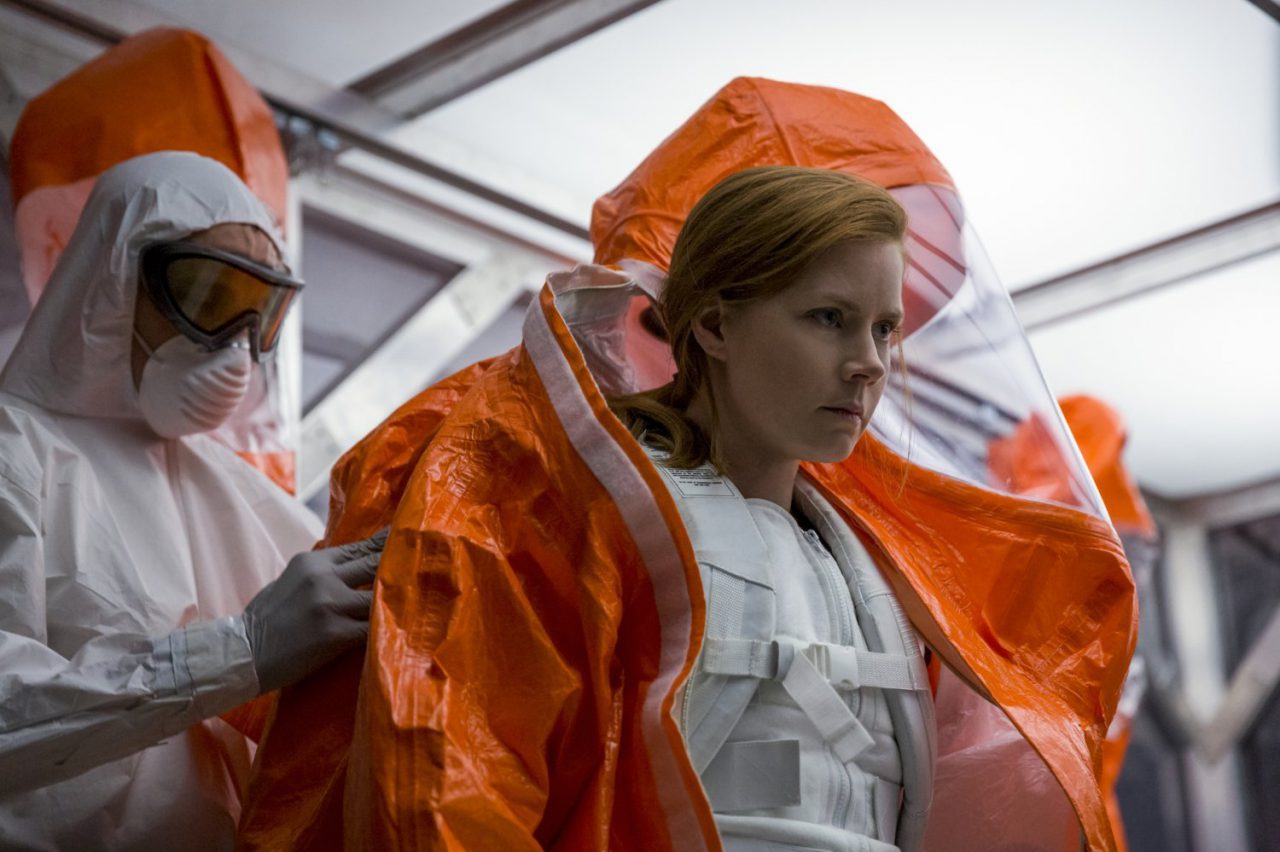In “Arrival,” space aliens — as they have so often in our cinematic past — come to Earth with questionable intentions.
Only this time their reception is less Ridley Scott than Stanley Kubrick.
“Arrival” may be the most thought-provoking science fiction film since “2001: A Space Odyssey.”
Like Kubrick’s cryptic classic, it will leave some viewers puzzled and perhaps dissatisfied. In lieu of ray guns and souped-up space jalopies, director Denis Villeneuve (“Incendies,” “Prisoners,” “Sicario”) depicts massive societal and personal dislocation and ruminates about the very nature of time.
Happily, “Arrival” does all this with a final emotional jolt that will linger in the viewer’s mind for. . . well, maybe forever. Great movies can do that.
The adventure begins with a dreamy, time-leaping sequence of a mother (Amy Adams) interacting with her daughter from infancy to adolescence. On the soundtrack this woman, Louise, talks about beginnings.
Then we’re taken to the present day where Louise, a world famous linguist, arrives in her college lecture hall to find that practically nobody has come to hear her talk about the Portuguese language. The absences are soon explained — 12 magnificent spaceships (they resemble gigantic elongated eggs, or maybe black mango seeds) are now hovering at various points around the globe.
In just a couple of brilliantly conceived and edited minutes, Villeneuve evokes the shock and widespread disruption caused by the realization that we are not alone.
Populations panic. Stock markets tumble. There are runs on bottled water and batteries. Looting and rioting.
Yes. This is exactly what would happen.
For Louise it gets personal when a military bigwig (Forest Whitaker) arrives at her doorstep to announce that her country needs her. Mankind must figure out how to converse with the newcomers.
Teamed with Ian (Jeremy Renner), a theoretical physicist, Louise finds herself inside a spacecraft floating above Montana. Once they work through crippling waves of fear and awe, they turn to the seemingly impossible task of deciphering the aliens’ language.
These beings — who float in a hazy atmosphere and look like a cross between an octopus and a jellyfish — sound like humpback whales. But their main form of communication, Louise realizes, is visual. From their tentacles they eject streams of inky smoke to form circular runes.
It’s a race against time. While the aliens have done nothing overtly hostile, paranoia runs rampant among some of the military personnel. There’s a CIA guy (Michael Stuhlberg) who dissects every moment of human/alien interaction, looking for warlike intentions.
Worse, a Chinese general is threatening a preemptive strike against the ship stationed in his airspace.
Villeneuve and screenwriter Eric Heisserer (adapting Ted Chiang’s short story “Story of Your Life”) never cave to predictable melodrama. Yes, they expertly punch our buttons, evoking fear, anxiety, wonder and, ultimately, hope.
But they’re working toward something far more subtle. This movie delivers intellectual thrills along with the visceral ones.
That “Arrival” works so well is in large part due to Adams, whose fear/eagerness in confronting beings from another world registers squarely with viewers. She can project deep emotions with a minimum of expression. It’s all in the eyes.
But there’s even more to it. The domestic sequence that opens “Arrival” suggests a staggering loss in Louise’s life, one that will echo throughout her interactions with the visitors and which, in the fullness of time, will come full circle.
Could encounters with otherworldly beings in the end reinforce the wonder of our own humanity?
“Arrival” makes that case with intellectual, emotional and visual grace that’s rare in any movie, much less one from such an overworked genre.









